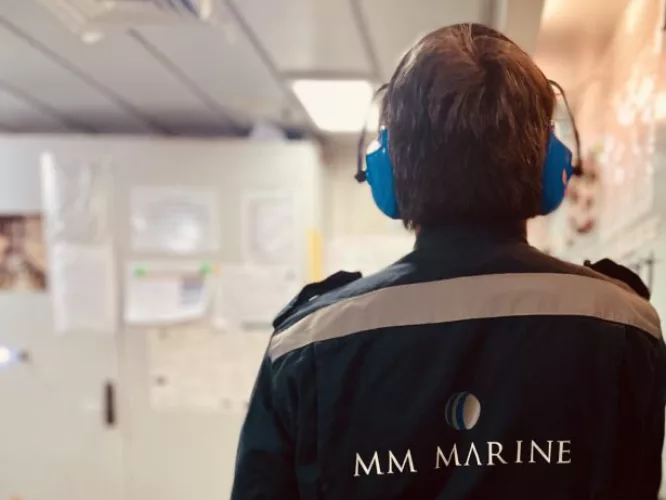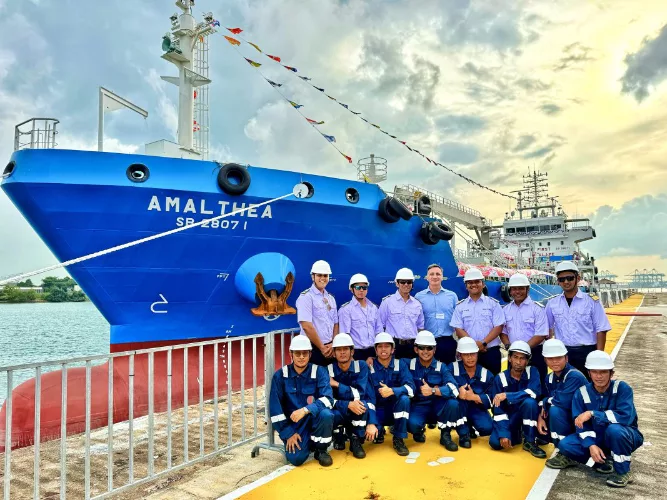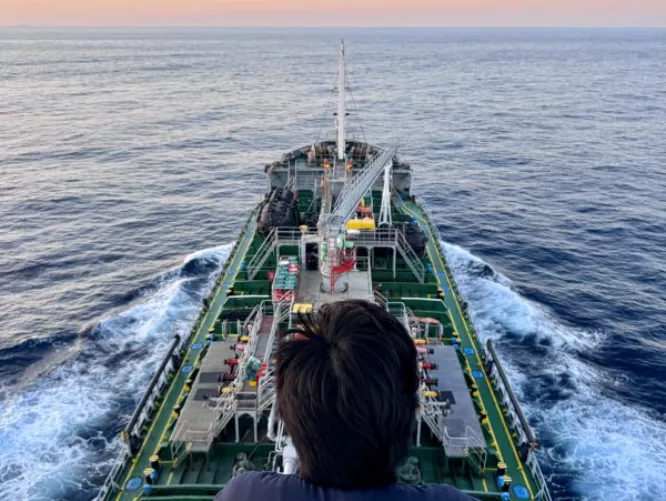Overview
2030 agenda for sustainable development
The 2030 Agenda for sustainable development was adopted by all United Nations member states in 2015. It is a plan of action for people, planet and prosperity.
Its scale and ambition are supported by the 17 Sustainable Development Goals (SDGs) and 169 targets with the objective of providing a holistic framework for addressing the challenge of sustainable development.
Mercuria’s Agenda 2030 program has been devoted to the company’s commitment to respecting the SDGs since 2019.

Mercuria’s Agenda 2030
Mercuria is deploying a range of resources in support of its Agenda 2030 program. This includes the launch of dedicated tools, strategic partnerships, and targeted funding initiatives to drive progress. To keep our global teams informed and engaged, we continue to use our website and newsletter to regularly share updates and progress.
We began our Agenda 2030 journey by engaging with our employees to understand their views on the SDGs that they believe are most closely tied with Mercuria’s activities. The feedback from this exercise was used by the organization’s leadership to help to formulate broad, company-wide strategy and goals. We also monitor the UN’s global assessment of the SDG’s and compare them to our own.
The UN’s SDGs reports have highlighted that investing in data and information systems is not money wasted. Statistical offices around the world have embraced innovative approaches and forged partnerships, improving the availability of data for evidence-based decisions. This is one of the reasons Mercuria and its subsidiary Minerva Bunkering are contributing data to HUB Ocean’s Ocean Data Platform initiative (previously the World Economic Forum’s Center for the Fourth Industrialization Network). We have also digitized our emissions calculations and reporting through Validere, a leading emissions management software provider, supported by a highly skilled team of GHG experts.
By using its expertise as users of and suppliers to the global shipping market and as owners of a vessel fleet, Mercuria and Minerva are sharing fuel data to provide increased transparency for environmental impacts from shipping as well as promote data-driven solutions in green shipping.
We have also engaged in other partnerships that contribute directly to the SDGs, which we discuss below.
SDG3: Good health and well-being

Ensure healthy lives and promote well-being for all at all ages.
Goal 3 highlights the importance of promoting well-being across all age groups, with a particular focus on fostering healthy lives. At Mercuria, we prioritize the well-being and mental health of our employees. Our Human Resources teams are committed to advancing a workplace culture that promotes awareness of mental health. Our ongoing objective is to continuously learn and adapt to ensure that mental health is effectively managed in a sustainable manner. Our Health and Safety programme is built on thorough due diligence checks. Mercuria remains dedicated to enhancing our Health and Safety programme, while also ensuring proper attention to the well-being of our seafarers and the communities surrounding our operations.
SDG7: Affordable and clean energy

Ensure access to affordable, reliable, sustainable and modern energy for all.
Goal 7 highlights that whilst the world continues to advance towards sustainable energy targets, the current pace of progress is insufficient to achieve Goal 7 by 2030. Significant disparities continue to hinder access to modern, sustainable energy, disproportionately affecting the most vulnerable populations. Beyond our fundamental business of supplying energy commodities to markets, we are deeply committed to the energy transition. We are also committed to the Energy Trilemma which ensures balance across Energy Equity, Energy Security, and Environmental Sustainability. Mercuria continues to diversity its portfolio in order to provide energy access for all and actively invest in the energy transition aiming to address inequities and support broader access to clean energy, and pledged that half of its investments would be into these areas by 2025, a goal we achieved ahead of schedule.
SDG8: Decent work and economic growth

Promote sustained, inclusive, and sustainable economic growth, full and productive employment and decent work for all.
Goal 8 aims for sustained economic growth, decent employment and labor rights for all. It emphasizes fair job opportunities, entrepreneurship and eradication of forced and child labour. Mercuria aligns with Goal 8, ensuring equitable recruitment and valuing every individual’s well-being, both within its direct workforce, broader holdings, and supply chains. Achieving Goal 8 is essential to fostering economic prosperity, reducing inequality and building sustainable societies worldwide. Therefore, it is important for Mercuria to align with this Goal. As we expand, our objective is to encourage a workplace culture where every individual is valued. Mercuria takes great pride in considering the wellness not only of its directly held employees, but also in the efforts of the even larger group of societies employed within the various holdings of Mercuria.
SDG9: Industry, innovation, and infrastructure

Build resilient infrastructure, promote inclusive and sustainable industrialization and foster innovation.
Goal 9 focuses on building resilient infrastructure, promoting inclusive and sustainable industrialization and fostering innovation. This goal aims to enhance access to reliable and sustainable infrastructure, including transportation, energy and information and communication technology (ICT). To further this goal, not only is Mercuria increasing its investments to advance the energy transition, but we are also investing in companies that work towards efforts to digitalize, standardize and bring efficiencies to processes in our markets. This can be demonstrated by the co-operation of Mercuria and other market participants in several consortium efforts for market improvements, as described on our innovation page.
SDG12: Responsible consumption and production

Ensure sustainable consumption and production patterns.
Goal 12 warns that unsustainable patterns of consumption and production are root causes of the triple planetary crises of climate change, biodiversity loss and pollution. Reducing the reliance on natural resources has set the Earth on an unsustainable course requiring increased resource efficiency and circularity measures. Our investments in TechMet (Partner Profile), a privately held company that can produce, process, and recycle “technology metals”, REEtec (Partner Profile), and N+P Group (Partner Profile) aim to help in solving problems of e-waste – discarded electrical and electronic equipment which is becoming fast-growing waste stream that contains both valuable and hazardous materials.
SDG13: Climate action

Take urgent action to combat climate change and its impacts.
Goal 13 calls for implementing measures to raise awareness, adapt to climate change impacts and integrate climate change considerations into policies and planning at all levels. By addressing climate change, we can safeguard ecosystems, protect vulnerable communities and ensure sustainable development for present and future generations. We achieved our commitment to have 50% of our investments into the energy transition. several years early. We are proud to participate in the Villars Institute Summit of the Villars Institute, which we discuss more in Goal 17. We have also launched Silvania, a $500M nature-based investment platform to promote biodiversity. Silvania is already helping conserve an area of 29 million hectares to date with a strong pipeline of new projects is in development The launch of Silvania aligns with Mercuria’s core values regarding climate change and its impact on biodiversity.
SDG14: Life below water

Conserve and sustainably use the oceans, seas and marine resources for sustainable development.
Goal 14 describes how human activity is endangering the planet’s largest ecosystem, the oceans and seas, and affecting the livelihoods of billions of people. The UN has stressed the importance of utilizing satellite tracking data to pinpoint breeding grounds and feeding sites crucial to the preservation of these and other species to safeguard key biodiversity areas (KBAs).
To achieve these goals, Mercuria and Minerva Bunkering continue supplying fuel data to HUB Ocean’s Ocean Data Platform Initiative. Minerva has also sponsored HUB Ocean’s Citizen Sea App. These collaborations enhance transparency regarding the environmental impacts of shipping and data reported directly by individuals present at sea, respectively, to support the development of data-driven solutions to protect the oceans.
,We are also proud to continue our support the Reef Alert Network, a not-for-profit organization founded by a group of passionate underwater explorers, marine scientists and researchers with the aim of shaping a new generation of conservation divers ready for action. This new frontier of recreational scuba diving is not only to educate all divers to respect the environment, but also to train them to help research, monitor, and recover the most threatened habitats. Through its network of conservation volunteer divers, researchers and affiliated dive facilities, they support local diving communities to achieve their goals and all those who want to take action to protect biodiversity in the Mediterranean Sea.
For more about our Ocean Efforts, please visit our Researching the Polar Oceans page.

SDG15: Life on land

Protect, restore and promote sustainable use of terrestrial ecosystems, sustainably manage forests, combat desertification, and halt and reverse land degradation and halt biodiversity loss.
Goal 15 focuses on how healthy ecosystems and the biological diversity they support provide ecosystem services such as the cleaning of air and water which sustain life and increase resiliency in the face of mounting pressures. Human activities have profoundly altered most terrestrial ecosystems. As an example, the world’s forest area continues to shrink, mainly due to agricultural expansion. This has decreased the ecosystem services provided by healthy ecosystems and the biological diversity they support.
Despite biodiversity not being a topic at the top of many companies’ agendas, it is important for Mercuria as we believe that it is critical for the balance of the planet. In our pursuit of this effort, we have announced Silvania in 2023, our commitment to invest $500M to support nature restoration and biodiversity.
SDG16: Peace, Justice and Strong Institutions

Promote peaceful and inclusive societies for sustainable development, provide access to justice for all and build effective, accountable and inclusive institutions at all levels.
Goal 16 reflects on how businesses around the world face obstacles and unfair competition due to corruption. For example, globally, almost 1 in 6 businesses face requests for bribe payments by public officials, most commonly to access essential public services such as water, electricity and healthcare. Corruption adversely impacts the sustainable development of national economies, yet the adoption of streamlined and transparent business processes can help curb corruption. Mercuria is committed to the principles of the WEF’s Partnering Against Corruption Initiative (PACI). This calls for businesses around the world to commit to zero tolerance of corruption in all its forms and join collective action initiatives to increase public trust in business, deliver fair markets and level the playing field by fighting corruption.
SDG17: Partnership for the Goals

Strengthen the means of implementation and revitalize the global partnership for sustainable development.
Goal 17 recognizes that sustainable development requires collaborative efforts among governments, the private sector, civil society and other stakeholders. It calls for strengthening international cooperation through enhanced policy coherence, capacity-building, and access to technology and innovation. Additionally, Goal 17 highlights the necessity of mobilizing financial resources for sustainable development and facilitating the transfer of environmentally sound technologies to developing countries. Achieving Goal 17 is crucial for fostering inclusive and sustainable development worldwide by promoting effective partnerships and collaboration across borders and sectors.
At Mercuria, we are proud to participate in the annual Summit of the Villars Institute. Many of our employees are invited each year to speak on subjects as diverse as Navigating the Energy Landscape, Deploying Trust-Building Technologies and Reshaping the Green Technology Narrative as part of a regular event focused on solving the Energy Trilemma through a systematic thinking approach.
We strongly believe that collaboration is key in driving the 2030 Agenda forward. We are members of the Maritime Anti-Corruption Network (MACN) and have partnered with the Institute for Human Rights and Business (IHRB), actively following their work and participating in their events—particularly on issues related to a just energy transition and the human rights risks affecting communities and seafarers.
Continue reading
← Our activities
Partner profiles →
Reporting areas
Governance
Planet
People
Prosperity




